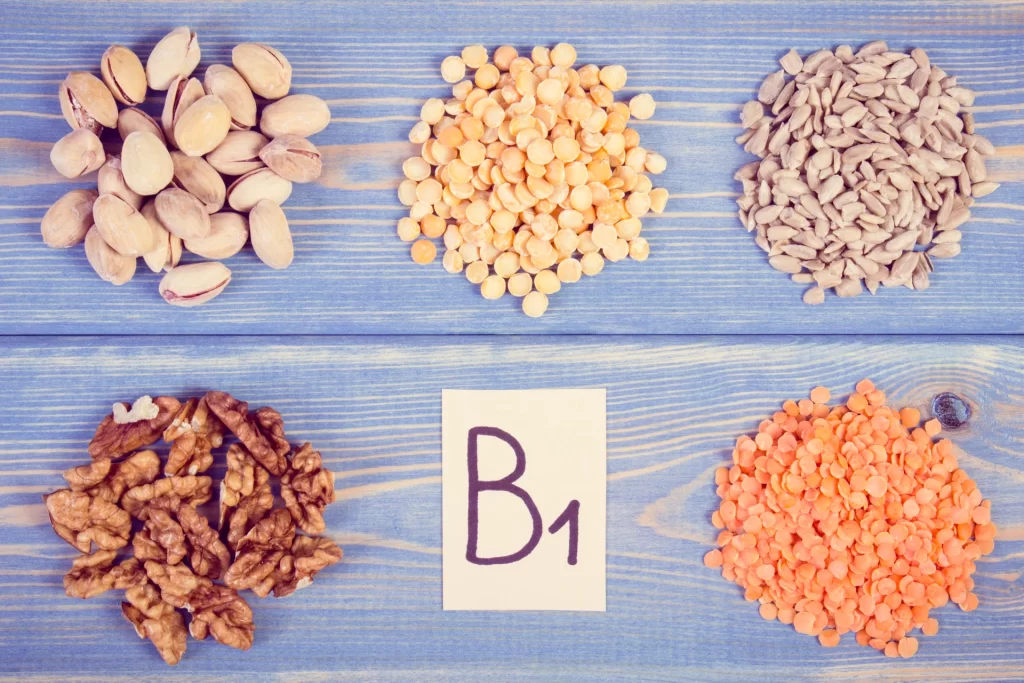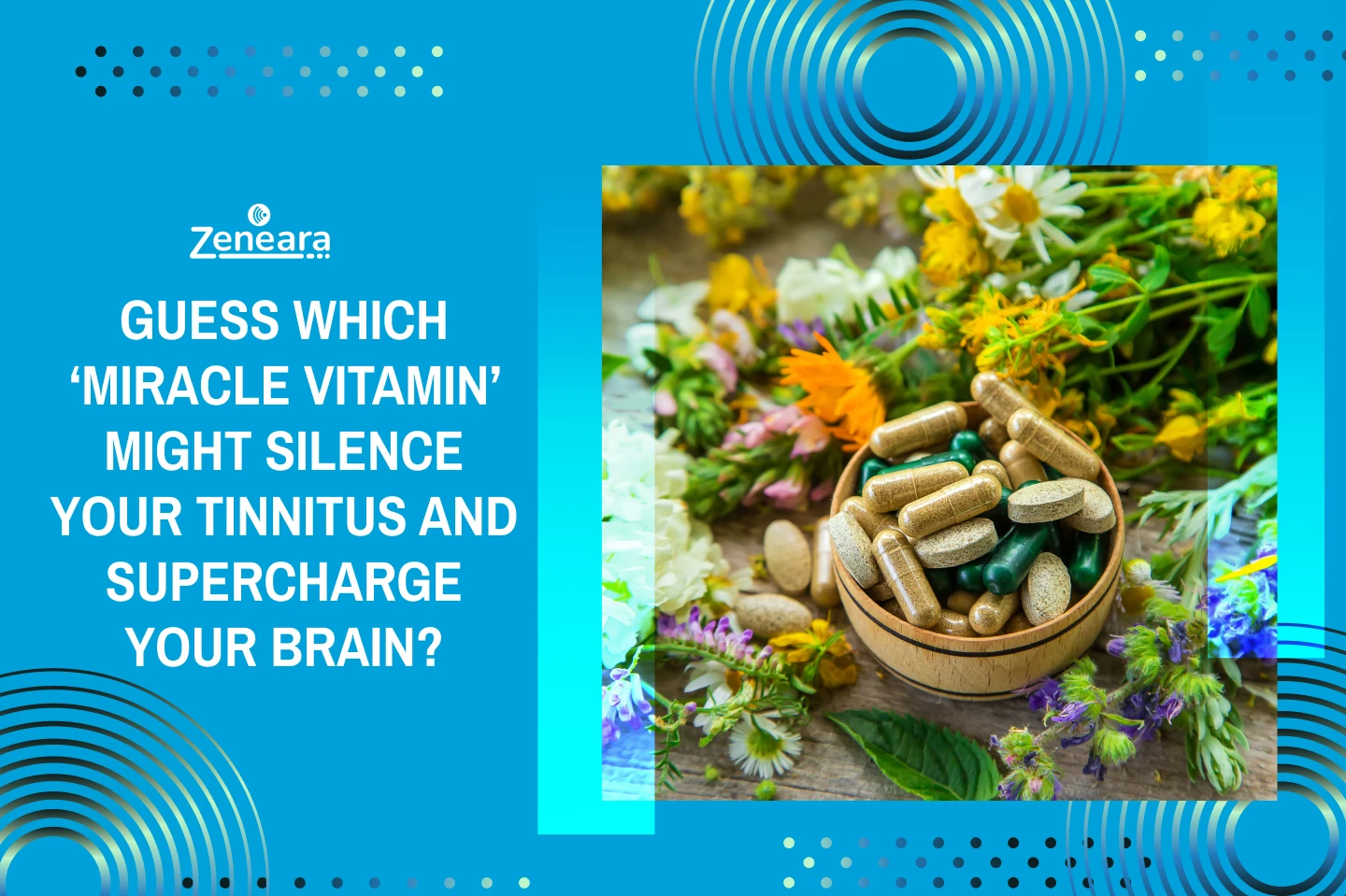Hi, it’s James Barrett here.
Let’s start this off with a quick pop quiz (don’t worry, no grades here):
Which vitamin has the most distinct components?
A) Vitamin D
B) Vitamin C
C) Vitamin B
D) Vitamin A
I’ll give you a hint:
It’s a vitamin with so many variations, it practically needs its own family tree.
If you guessed Vitamin B, you’re absolutely right! It’s not just one vitamin. It’s a whole group of nutrients, each with a unique role in keeping your body, mind, and ears in peak condition.
You might be wondering why I’m so passionate about B vitamins.
Well, as someone who has seen friends and family struggle with conditions like tinnitus—a persistent ringing in the ears—I believe understanding these vitamins can offer hope and solutions.
Many people don’t realize that deficiencies in certain B vitamins, especially B12, can worsen tinnitus symptoms.
I’m curious…
Have you tried B Vitamins for brain health or tinnitus relief? Did you notice any changes? I’d love to hear your story… drop a reply.
And there’s more…
Research shows that B vitamins play a significant role in brain health.
Let’s explore further…
Meet the B Vitamin Team and What They Do
The Vitamin B family consists of eight distinct vitamins, each contributing something unique to both brain and ear health. Here’s how each one plays its part:
- B1 (Thiamine): The Nerve Calmer

Helps stabilize nerve signals, including those in the auditory system, which can reduce the chaotic sensation of tinnitus. Also supports energy metabolism for better brain function.
- B2 (Riboflavin): The Energy Catalyst
Aids in energy production and reduces oxidative stress in nerve cells. It helps maintain overall brain health, which is essential for clear auditory processing.
- B3 (Niacin): The Blood Flow Enhancer
Improves blood circulation to the inner ear by dilating blood vessels. Better circulation means more oxygen to auditory nerves, potentially calming tinnitus.
- B5 (Pantothenic Acid): The Stress Reducer
Helps produce coenzyme A, crucial for energy metabolism and reducing stress hormones. Lower stress levels can indirectly ease tinnitus by reducing anxiety-driven ringing.
- B6 (Pyridoxine): The Mood Regulator

Plays a vital role in synthesizing neurotransmitters like serotonin and dopamine. Good mood regulation can decrease the perceived intensity of tinnitus and improve mental clarity.
- B7 (Biotin): The Cell Repairer
Supports overall cellular health, including the cells in the inner ear. While often known for hair and nail health, it aids in nerve function, which can support hearing health.
- B9 (Folic Acid): The Homocysteine Buster
Lowers homocysteine levels, protecting blood vessels in the brain and ears from damage. Better vascular health can improve blood flow to the auditory system, potentially reducing tinnitus.
- B12 (Cobalamin): The Nerve Protector
Essential for maintaining nerve health and repairing nerve damage, particularly in the auditory system. Low B12 levels are linked to worsened tinnitus symptoms, making this a crucial vitamin for relief.
Your Action Plan for Using B Vitamins

So, how can you start exploring B Vitamins for tinnitus relief and better brain health?
Here’s a simple guide:
- Get Your Levels Checked: Especially B12—low levels are often linked to tinnitus. A blood test can help determine if you need supplementation.
- Add B-rich Foods: Think eggs, dairy, leafy greens, beans, and whole grains. These foods provide a natural, steady intake of B Vitamins.
- Consider a B-Complex Supplement: If your diet alone isn’t cutting it, a B-complex supplement can fill in the gaps. It’s an easy, all-in-one way to get the full spectrum of B Vitamins.
Remember, every small step counts… whether it’s adjusting your diet or simply being more aware of your nutrient intake. Taking charge of your health is empowering.





